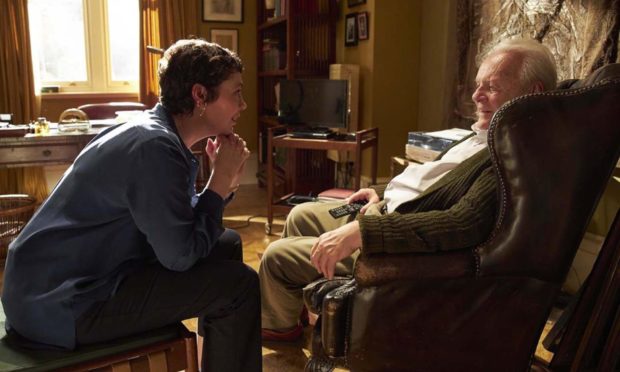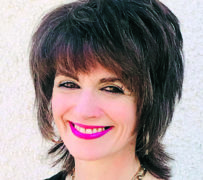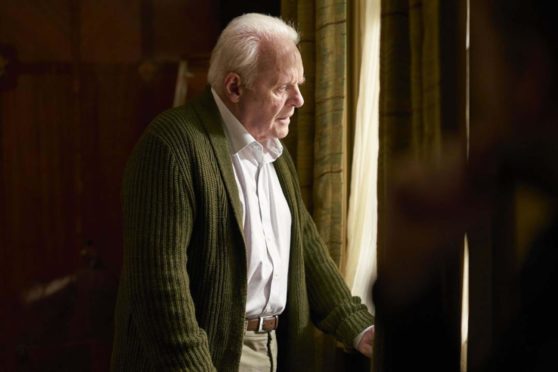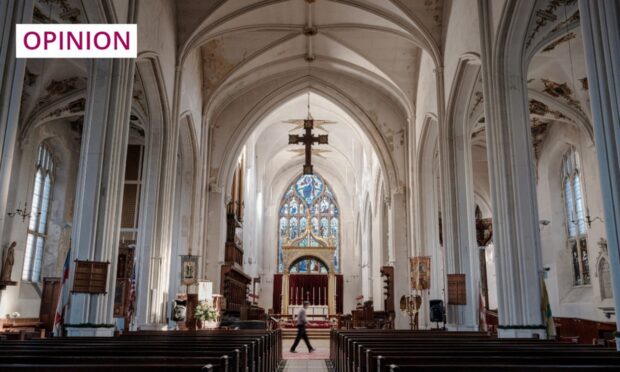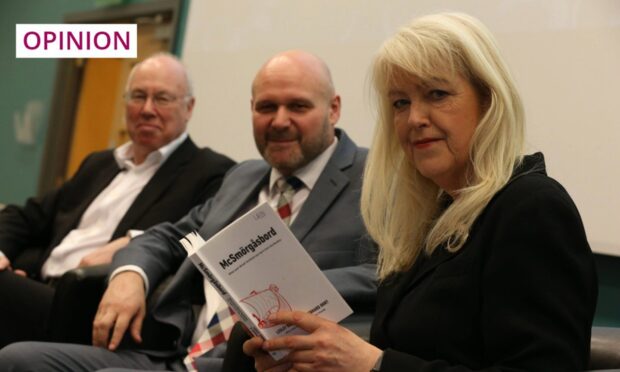After the fall, something had changed.
Post-operation, she looked so tiny in the hospital bed – an old, lost child drowning in a sea of sheets and pillows, eyes cast downwards with a strange intensity. When they flicked up again, her voice was conspiratorial, barely a whisper.
“They are trying to poison me,” she confided, watching a nurse pass the bed. They were putting it in her food. It had to be the anaesthetic talking, I thought, though somewhere inside, I knew it was not. My horrified reassurances were met with vague indifference – as if my truth didn’t really matter anymore – and then with confusion.
The Father captures sense of loss and confusion
I saw that look in actor Anthony Hopkins’ eyes during his stellar performance in The Father, Florian Zeller’s film about dementia that has earned Hopkins an Oscar nomination at this weekend’s ceremony. At 83, he is the oldest ever Best Actor Oscar nominee and his nuanced performance could well net another award to add to his BAFTA for the role.
He captures it all: the loss and confusion, the fear-induced anger and irritability, the painful vulnerability, even the careless cruelty as he praises his absent daughter and dismisses his present one.
“Doesn’t she look lovely?” I said, admiring my young daughter’s new haircut that so beautifully framed her face.
“No,” said my mother flatly, “I don’t like it.”
Up in her bedroom, I hugged my daughter. Grandma didn’t mean it; it was just her illness.
“I know,” she said, eyes unnaturally bright. Downstairs, my mother was still sitting on the edge of the bed, staring.
“What’s wrong, mum?” I asked. Her face, so often mask-like now, was stricken. Illness made her empathy stutter and start like faulty wiring but in this surge she was sad, eaten up with guilt. She looked up at me helplessly: “I hurt her.”
Love conquers all – but dementia makes loving hard work
The Father introduces so many things about dementia that are rarely discussed. It is not just about lost memory. It is about lost personality; shifts in mood; lapses of judgement. Hopkins plays Anthony who looks physically robust yet emotionally vulnerable, increasingly frightened by a shifting sense of reality. His daughter, Anne, is played by Olivia Colman. Except, a few minutes later, she is played by another actor.
Sometimes, you are looking after someone you no longer recognise. Someone who no longer recognises you, whose blank eyes scrutinise you with a vague curiosity and the faded remnants of love
The flat Anthony lives in suddenly has a change of furniture. A man who says he is his daughter’s husband appears. But isn’t she divorced? The shifting perspective captures for the viewer something of the cognitive confusion affecting sufferers. We are not certain what is real and what is not – and neither is Anthony.
The confusion in Anthony’s eyes is reflected in Anne’s. Love conquers all, we like to say. But the reality is that dementia can make loving hard work. Sometimes, you are looking after someone you no longer recognise. Someone who no longer recognises you, whose blank eyes scrutinise you with a vague curiosity and the faded remnants of love.
Anne wants to look after her father but she also wants a life. She wants a relationship with him, but also with her partner, Paul. Paul secretly hisses at the old man that he is ruining his daughter’s life. As a viewer, you hate him for his compassionless cruelty, but you also recognise the approaching trauma. At some point, Anne will be forced to choose: her life or her father’s. Anthony or Paul.
We need to talk about the emotional reality of caring
The Father is not a film that can easily be switched off because it acknowledges the elephant in the room. Yes, we know statistics: there are 850,000 sufferers of dementia in the UK, a figure set to rise to one million by 2025. But it’s the emotional reality that we discuss less often. The sacrifices involved for carers, the effect on careers and relationships, the emotional guilt of caring – but never quite enough.
The fall was the beginning of the end, but the end was not quick. It was the slow descent, the long goodbye. It was my mother’s eyes that seemed most unbearable. They were blank, their vibrance replaced with watery confusion, the retreat to an almost childlike dependence, before indifferent defeat. Anyone who has seen that look and heard an elderly dementia sufferer cry for their mum will know how realistically Hopkins captured that in his final, heartbreaking tears for his mother.
So, despite the irony in dementia being celebrated in the artificiality of red carpet Tinseltown, I hope he wins. A nod, at least, to sufferers, but also to their carers. Carers who struggle daily without recognition, but with award-winning devotion.
Catherine Deveney is an award-winning investigative journalist, novelist and television presenter
